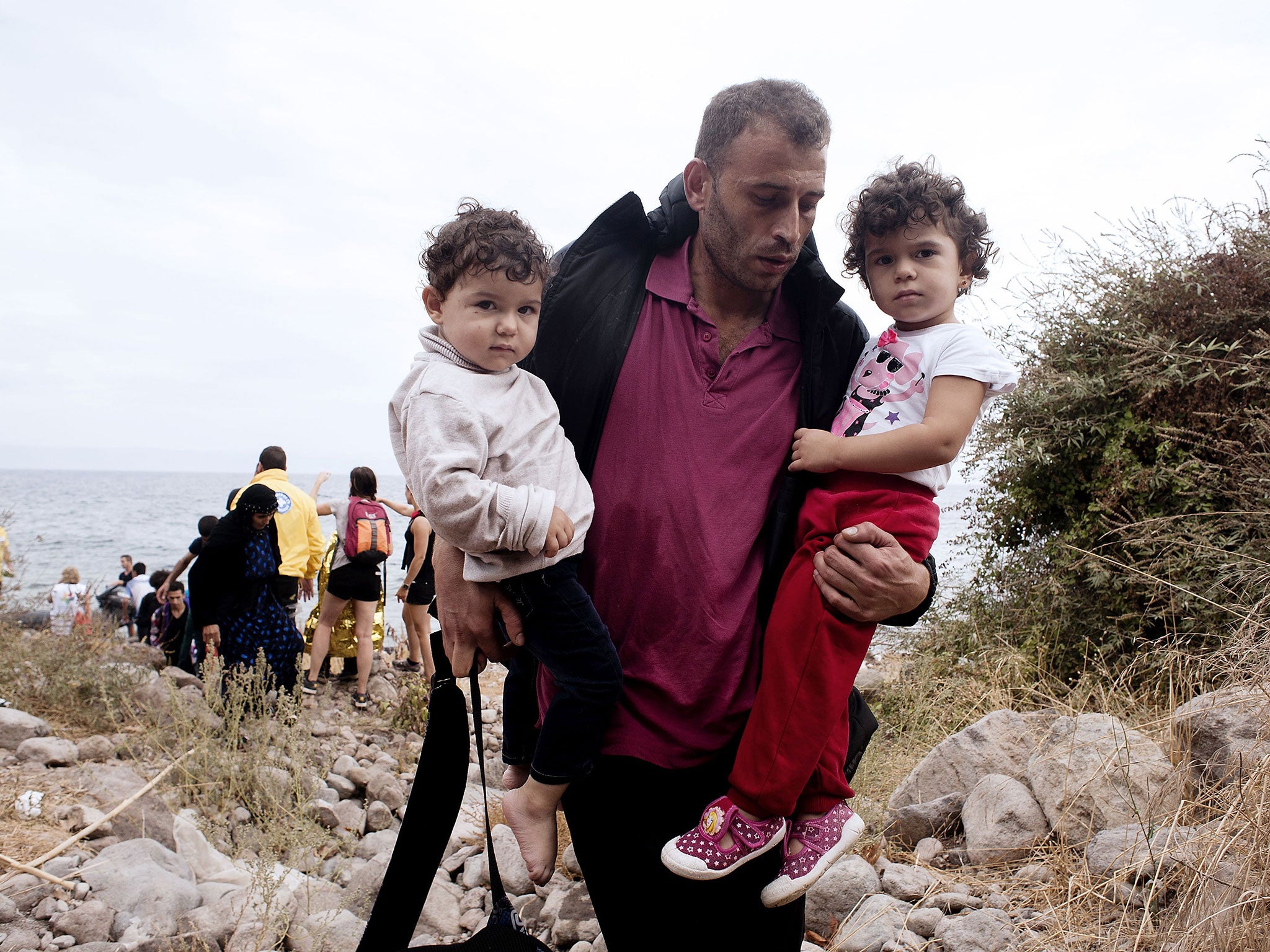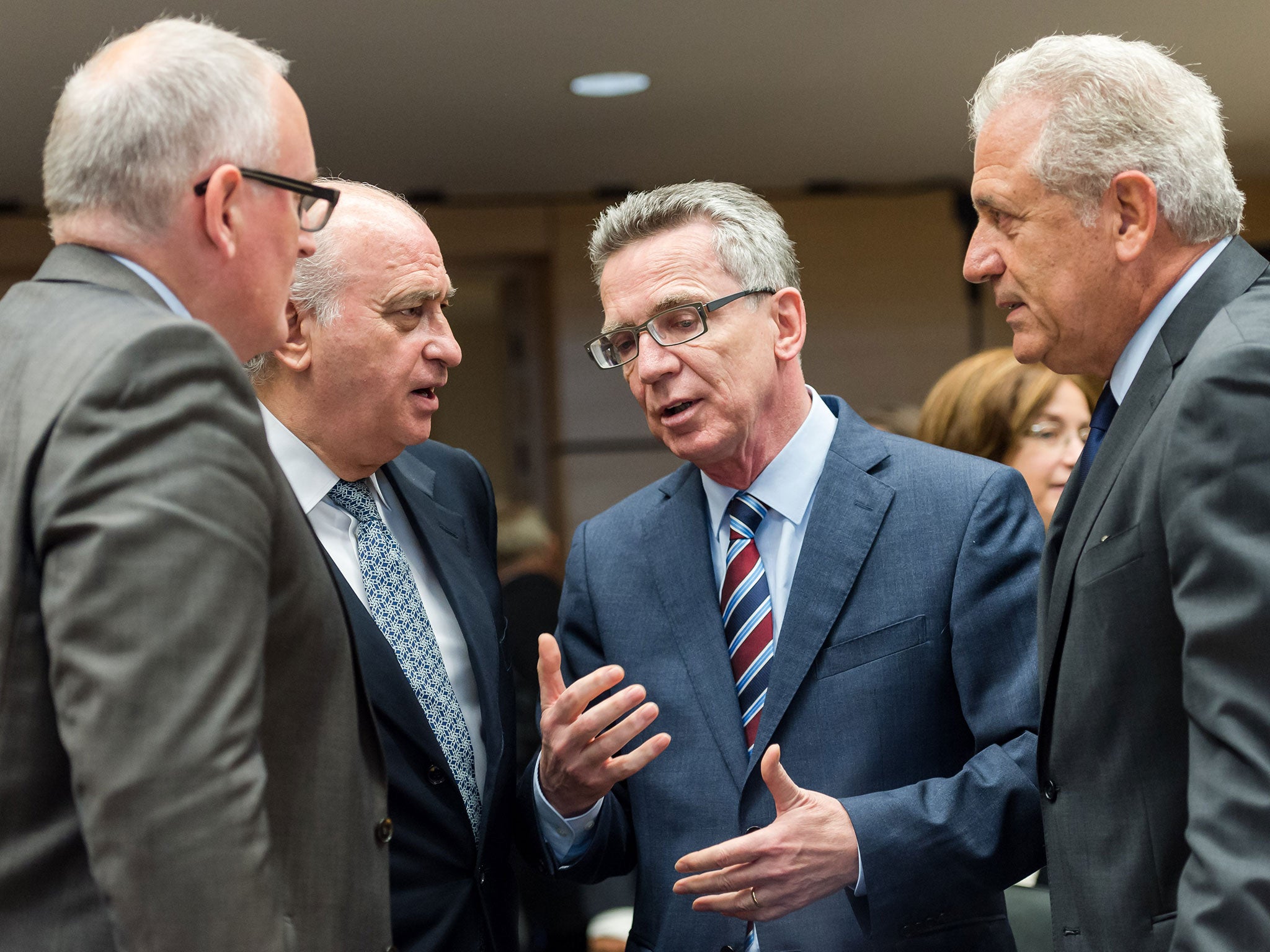Refugee crisis: EU ministers try to agree quotas - as UN says even its best offer is not enough
Insiders are deeply pessimistic about the whole Brussels process

Your support helps us to tell the story
From reproductive rights to climate change to Big Tech, The Independent is on the ground when the story is developing. Whether it's investigating the financials of Elon Musk's pro-Trump PAC or producing our latest documentary, 'The A Word', which shines a light on the American women fighting for reproductive rights, we know how important it is to parse out the facts from the messaging.
At such a critical moment in US history, we need reporters on the ground. Your donation allows us to keep sending journalists to speak to both sides of the story.
The Independent is trusted by Americans across the entire political spectrum. And unlike many other quality news outlets, we choose not to lock Americans out of our reporting and analysis with paywalls. We believe quality journalism should be available to everyone, paid for by those who can afford it.
Your support makes all the difference.The UN has criticised shambolic talks between EU ministers aimed at reaching an agreement on the refugee crisis.
Europe has committed in principle to redistributing 120,000 people across the 28-nation bloc - but fallen down when it comes to working out the practical details.
Interior ministers from each country were meeting on Tuesday to try and make some sort of progress before a meeting of their respective leaders on Wednesday, but the UN's refugee agency said the EU needed to go much further, and faster.
The UNHCR said even if the 120,000 resettlement programme could be agreed, this was the equivalent of just 20 days' worth of arrivals at the current rate.

"A relocation programme alone, at this stage in the crisis, will not be enough to stabilise the situation," UNHCR spokeswoman Melissa Fleming said, calling on the EU to set up reception facilities for tens of thousands of refugees at any one time.
To make matters worse, the Czech Prime Minister Bohuslav Sobotka said just hours before Tuesday's talks that his country would reject out of hand any attempts to enforce EU-wide refugee quotas.
He said any attempt to impose such a scheme could end in "big ridicule" for the European Commission, the EU's executive arm, and for governments that supported the idea.
EU leaders had hoped the ministers could sort out the thorny quota issue so that their summit on Wednesday could focus more broadly on issues affecting the Middle East and Turkey at source.
But after weeks of talks, senior officials voiced growing exasperation. The minority of dissenters, notably Hungary, Slovakia and the Czech Republic, can be out-voted if necessary - but diplomats want to reach concensus to avoid the further strain on relations that would cause.
"This is the worst I've ever known things in more than 20 years dealing with European affairs," one senior diplomat said.
Additional reporting by agencies
Join our commenting forum
Join thought-provoking conversations, follow other Independent readers and see their replies
Comments